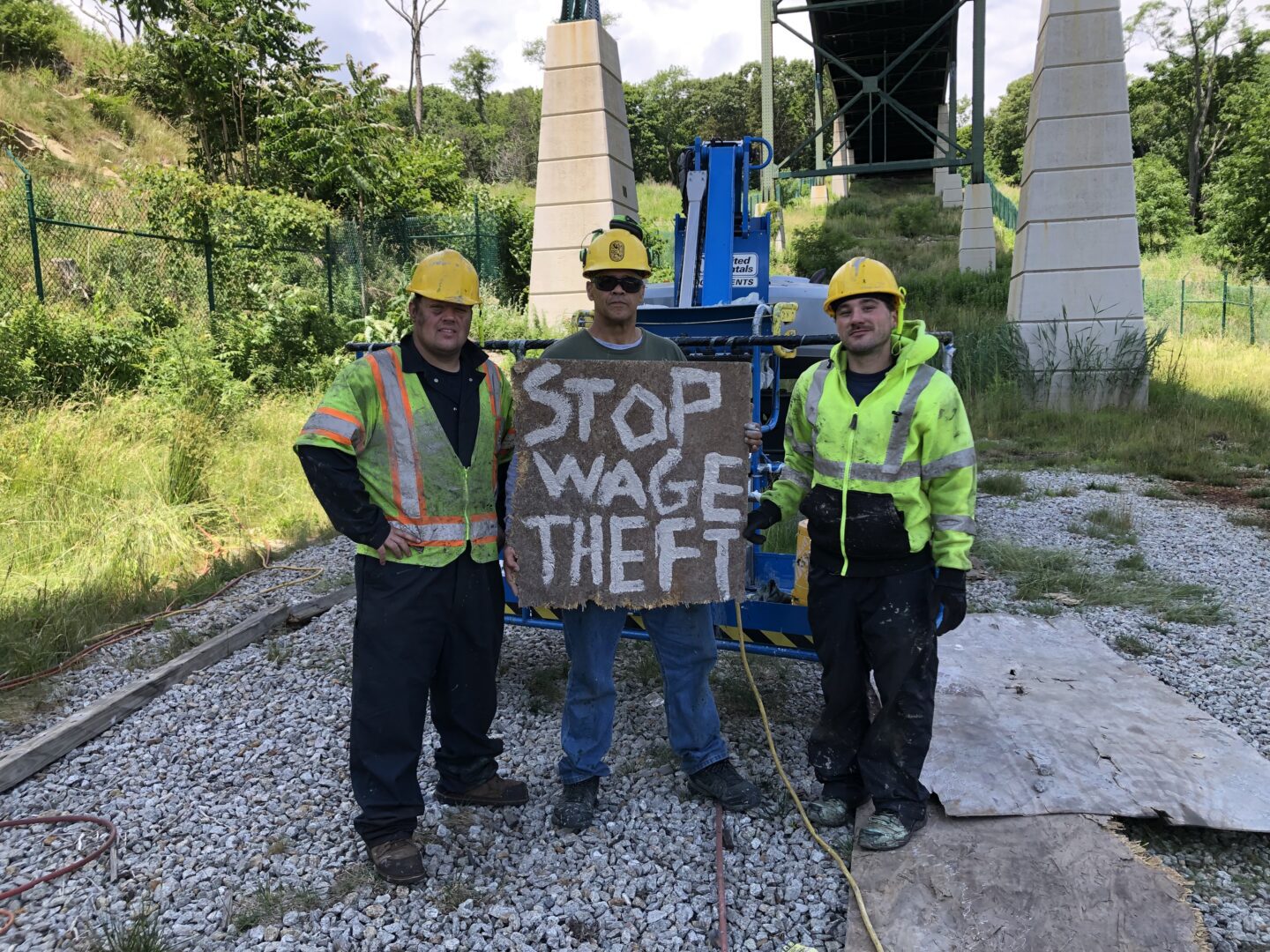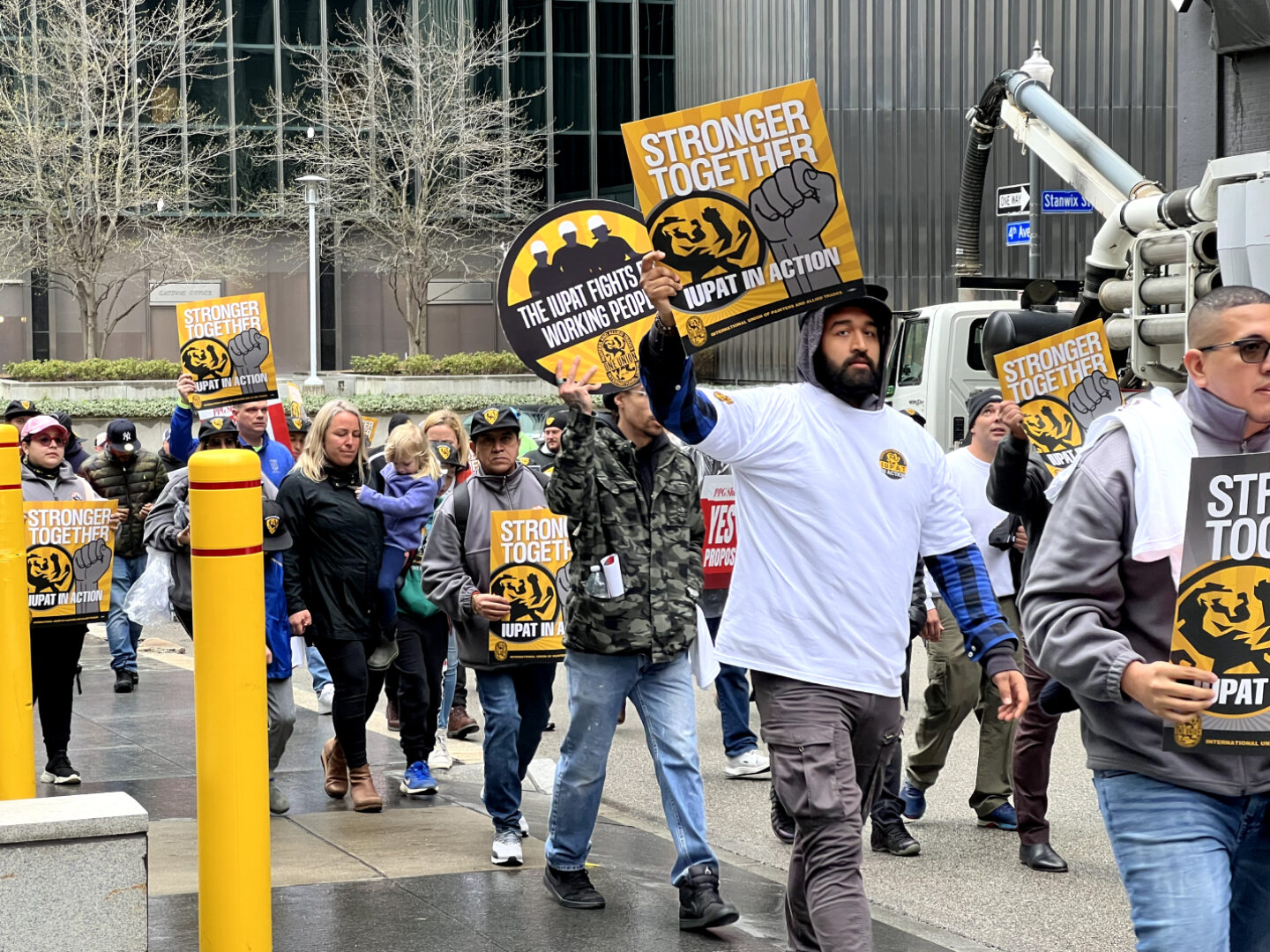Know Your Rights at Work
Every worker in the United States has the legal right to a safe and fair workplace.

National Labor Relations Act
Employers frequently oppose workers’ efforts to organize. A union of workers serves as a counterbalance to the power of the bosses in an employment relationship. Some employers respond to workers’ organizing by outright violating labor law, while others do not explicitly break the law but instead attempt to scare off those efforts.
It’s important that you know your rights at work, even if you are not attempting to organize or form a union.
The foundation of federal US private sector labor law is called the National Labor Relations Act (NLRA). Passed in 1935, the NLRA establishes the guidelines around how US workers can form and join unions.
Under the NLRA, you have the right to:
- Form or join a union.
- Talk to your co-workers about joining a union.
- Pass out literature about joining a union (in non-work areas during non-work times).
- Sign up your co-workers on petitions in non-work areas and during non-work times.
- Join with your co-workers for the purpose of forming a union.
- Join with your co-workers for the purpose of improving working conditions in your place of employment.
41.5%
Employers were charged with violating federal law in 41.5% of all NLRB-supervised union elections in 2016 and 2017, with at least one ULP charge filed in each case.
Fair Labor Standards Act
The Fair Labor Standards Act (FLSA) establishes rules around the minimum wage and overtime pay among public and private sector workers. It also covers areas such as youth employment and recordkeeping.
Workers are entitled to a minimum wage of at least $7.25 per hour, effective July 24, 2009. Any hours over 40 per week must be paid at time and a half.
$16,729
According to the Economic Policy Institute, the average misclassified construction worker loses out on as much as $16,729 in wages and benefits compared to a W2-employed worker.
Worker Misclassification in the Construction Industry
Some employers, particularly in the construction industry, attempt to evade the Fair Labor Standards Act and the National Labor Relations Act by misclassifying their employees as “independent contractors.”
So-called “independent contractors” are not entitled to many employee protections and have no legal right to form or join a union. An independent contractor is typically defined as someone who is not economically dependent on an employer and who is engaged in his or her own business.
Employers in the construction industry frequently misclassify their workers in an attempt to evade wage and hour laws and workplace protections, as well as avoid liabilities on the job.
Several factors can help determine if a worker is a legitimate independent contractor or if they are misclassified:
- The extent to which the worker’s services are an integral part of the employer’s business;
- The permanency of the relationship;
- The worker’s investment in tools and equipment (i.e., if the worker owns/maintains his or her own equipment, it is more likely that the worker is an independent contractor);
- The nature and degree of control of the worker by the employer;
- The worker’s opportunities for profit and loss; and
- The amount of skill, initiative, judgment, and foresight required in performing the job.
Have your rights at work been violated? Join the IUPAT and fight for a better future.
The IUPAT has been fighting for higher standards for working people for over 135 years.
